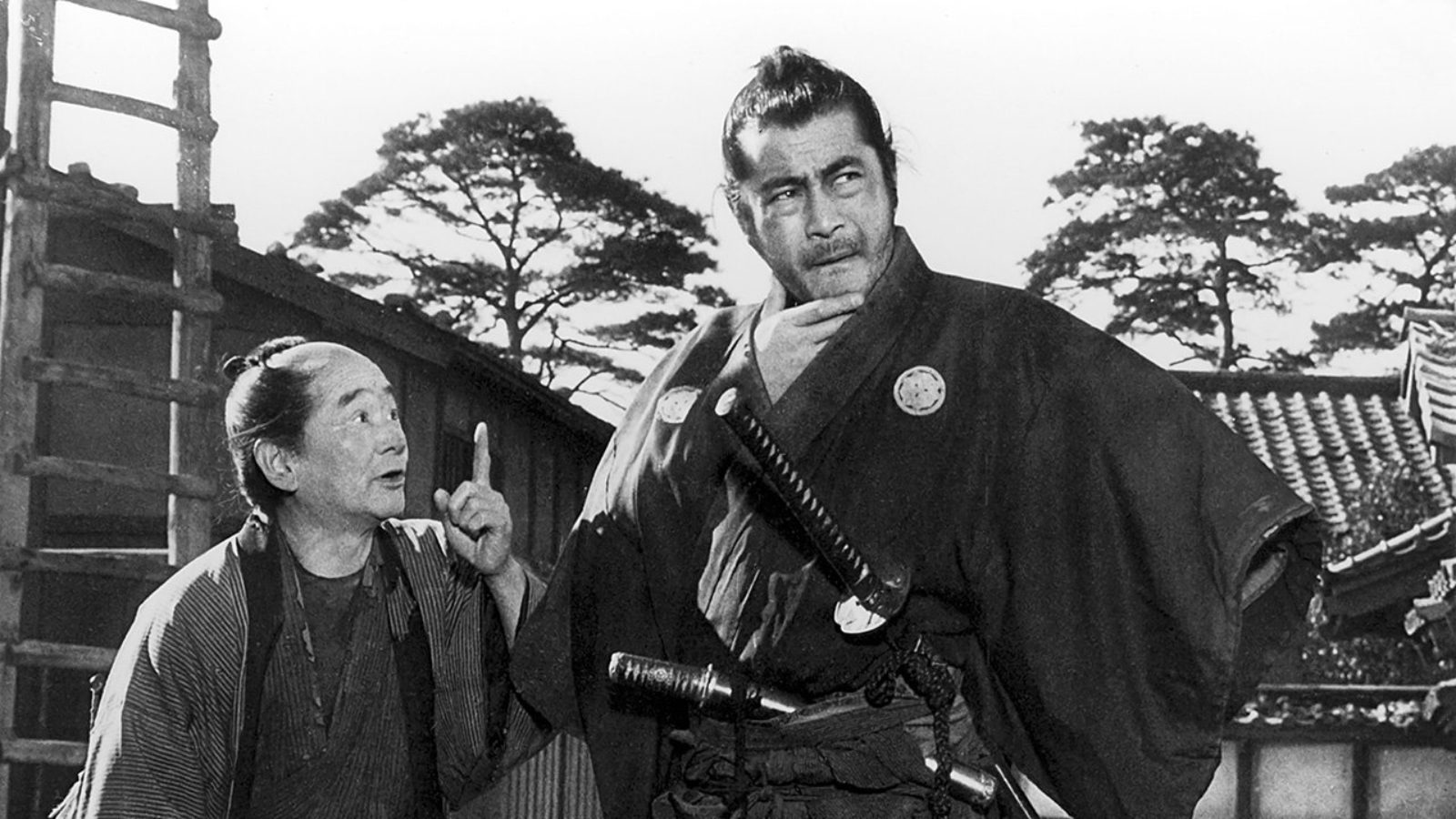In the late Edo period, the samurai Sanjuro (Toshirô Mifune) arrives in a village torn by the warfare between two rival gangs – one headed by a sake brewer, the other by a silk merchant – both of whom are keen to hire his services.
The feudal era is coming to a close and bushido – the warrior’s code of honour – is no longer upheld. An unemployed samourai is on the road selling his services as bodyguard to the highest bidder. The solitary character of this masterless rōnin is unusual: his preference for negotiation and cunning rather than action makes him, in Charles Tesson’s words, “the first sword-fighting film hero who is cynical and opportunist (for Japan, a revolution in the genre’s history), more interested in trading his talent than using it”. In this film, which was the filmmaker’s biggest success in Japan, Kurosawa paints the portrait of a man who is master of his art, astute and manipulative (he expedites the mutual destruction of both gangs), altruistic (but selectively) and infinitely cynical. Yojimbo inspired Sergio Leone’s legendary remake For a Fistful of Dollars. Without realising it, Kurosawa invented one of the archetypes of the Italian Western, the efficient and often unscrupulous professional. While Leone followed up with For a Few Dollars More, Kurosawa’s sequel to Yojimbo came out in 1962 under the simple title Sanjuro.



